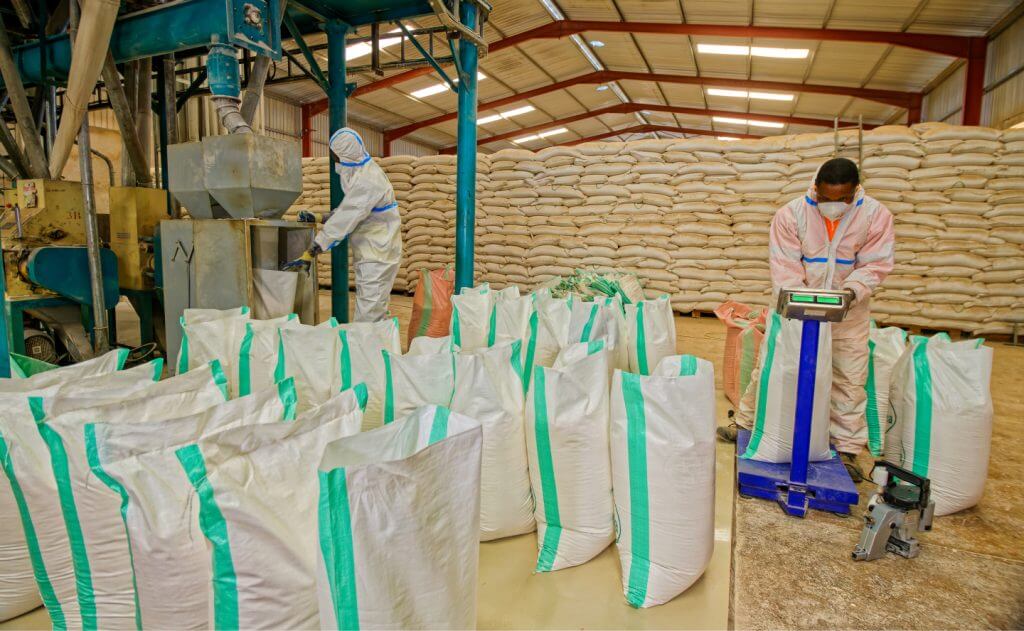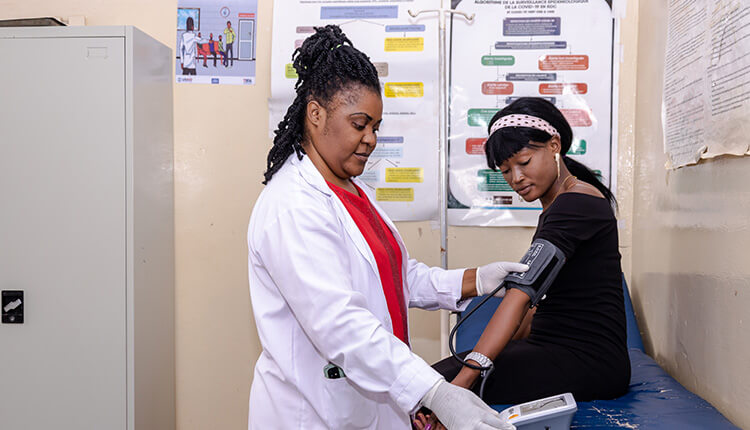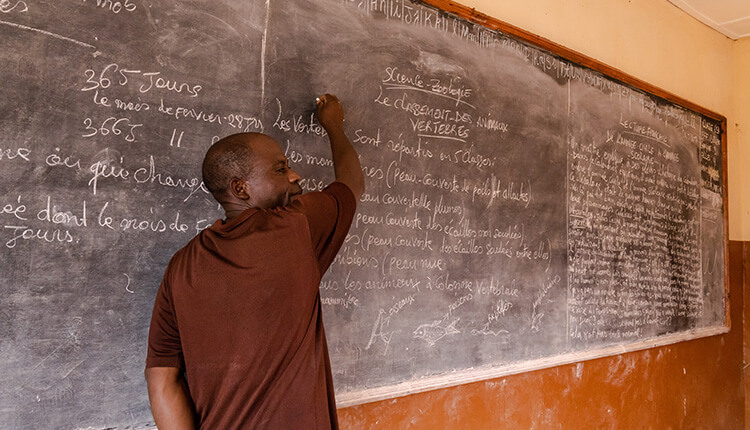Pioneering Partnerships with ASMs
Home » Pioneering Partnerships with ASMs
Chemaf has been a key figure of the DRC’s mining landscape for more than 20 years. In that time, the Company has become all too aware of the country’s complexities and socio-economic challenges and has dedicated considerable resources to providing support aimed at uplifting and improving the circumstances of the stakeholder groups within its sphere of influence. This commitment was highlighted through Chemaf’s proactive participation in a globally pioneering project known as the Mutoshi Pilot Project.
This project, which ran from January 2018 to early 2020, sought to formalise and improve artisanal and small-scale mining (ASM) activity on its copper-cobalt-rich Mutoshi concession located on the outskirts of Kolwezi, Katanga Province, as a foundation for the responsible sourcing and secure delivery of cobalt into the global supply chain. It was undertaken as a world-first collaborative effort between Chemaf, as the large-scale mining partner, the Trafigura Group, internationally respected NGO Pact, and a collective of artisanal and small-scale miners (ASMs) working under the umbrella of COMIAKOL.
This pilot project involved assisting ASMs on their site with stripping, delivery of various forms of training of COMIAKOL members, provision of safety equipment, and other related activities to increase productivity, improve working conditions, and enhance the value of cobalt produced.
Chemaf provided technical support and training on responsible mining practices, while Trafigura helped to create a better supply chain for the mine’s cobalt ore. PACT provided support for the miners themselves, helping to build a cooperative structure that would give more bargaining power and improve conditions.
At its height, more than 2,000 accredited artisanal miners were involved in the scheme. The project was by no means perfect, but did provide a range of benefits to those stakeholders involved, including, but not limited to:
- Improving health and sanitary working conditions
- Improving safety of the ASMs in particular due to the use of open pits rather than shafts
- Significantly increasing productivity and output
- Reducing workplace harassment for women
- Preventing child labour activities and generally improving family life
- Facilitating the expansion of local businesses and upliftment of surrounding communities
It was with the threat of the COVID-19 virus that spread to the DRC in March 2020 and the need to safeguard the health of workers onsite and their surrounding communities that operational activities at the Mutoshi Pilot Project were suspended. It was later determined that operations would not restart owing to changes in DRC law which saw the establishment of Entreprise Générale du Cobalt (EGC), the DRC State Owned Entity responsible for the purchasing of all ASM cobalt.
Ultimately, the project demonstrated that it is possible to improve conditions for artisanal miners in the DRC and provided a blueprint for similar initiatives in the future. It showed that collaboration between mining companies, commodity traders, and development organizations can have a positive impact on both people and the environment.
Background
The concession upon which the Mutoshi Project is situated is a mineral-rich area and has been mined for various commodities by different companies and artisanal miners for more than a century.
Chemaf acquired the Mutoshi concession from the Congolese State-owned mining company Gecamines in 2015 under a 25-year lease agreement. This acquisition formed the bedrock of Chemaf’s growth strategy to expand its mining footprint across the mineral-rich Katanga Province. As part of that agreement, Chemaf negotiated to pay the sum of the full lease in instalments over a three-year period, with the final payment being made in December 2017. Until that final payment was made, Chemaf had limited rights and management of the Mutoshi concession the exception being that it was allowed to conduct some drilling activity to firm up resource estimates.
When Chemaf obtained full concession rights in December 2017, the site was occupied by a number of communities and ASMs who were mining surface cobalt deposits. While Chemaf fully intended to develop its Mutoshi concession into a state-of-the-art mechanised mine, the Company realised that there was a mutually beneficial interim opportunity to work with the ASMs as a mining contractor.
Chemaf subsequently appointed a single cooperative, COMIAKOL, authorised by the DRC Regulatory Authorities and representing approximately 5,000 ASM workers, to operate as a mining contractor on a designated area of its Mutoshi concession known as ‘Mutoshi Cobalt’. This would be managed as a pilot scheme while feasibility studies for a mechanized mine and processing plant were undertaken.
To sell the cobalt hydroxide, Chemaf entered into a three-year marketing agreement with international commodities trader and logistics company, Trafigura Group. Given the complexities around artisanal mining, particularly social and environmental impacts, a key component of this agreement was that all ore bought from the ASM cooperative had to meet Trafigura’s Responsible Sourcing Expectations as well as the OECD Due Diligence Guidance for Responsible Supply Chains of Minerals from Conflict-Affected and High-Risk Areas.
The main tenets of these expectations included that suppliers should:
- Not contribute to serious abuses, such as torture, degrading treatment, compulsory labour, the worst forms of child labour or other human rights violations.
- Not engage with upstream suppliers linked to serious abuses.
- Engage with partners to avoid or minimise the exposure of vulnerable groups in their upstream supply chains.
- Screen security forces to ensure that those known to be responsible for gross human rights abuses are not hired or required to demonstrate mitigation measures are in place.
- Implement measures to prevent or mitigate risks of bribery.
- Implement measures to prevent or mitigate risks of money laundering.
- Implement measures to ensure that all required taxes, fees and royalties are paid to governments.
Collaborative partnership
Scope of the project
Impact
Outcome
Other Initiatives
Promoting health equity is at the core of our efforts to create a more inclusive world.

Alleviating poverty and food insecurity; promoting entrepreneurship. A growing concern Food security in the face of climate change is a…

Bridging the development gap in our stakeholder communities.Chemaf’s support for improving infrastructure empowers sustainable livelihoods and improved connections between buyers…

Health equity is central to Chemaf’s efforts to create a more inclusive world.Our healthcare initiatives focus on improving access to…

Enhancing opportunities through learning and skills share initiatives. The essence of Human Resources Development is education; learning also plays a…
